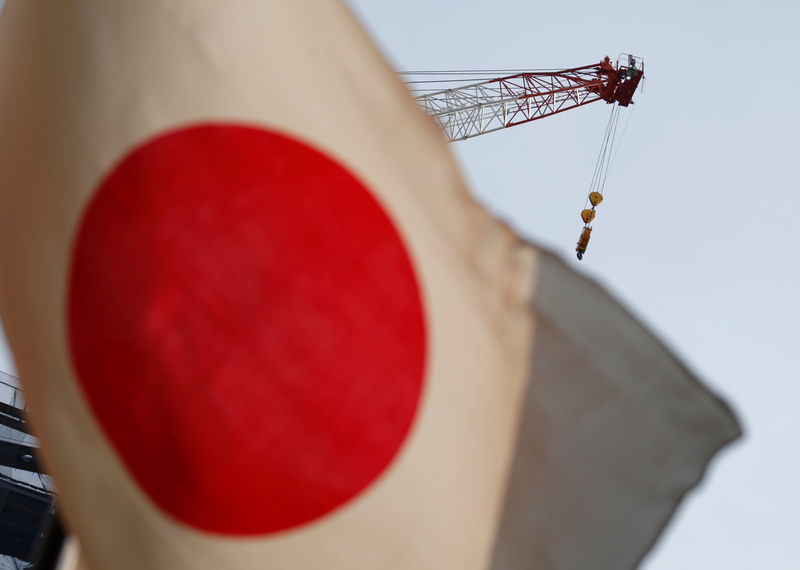By Leika Kihara and Tetsushi Kajimoto
TOKYO (Reuters) - Japan's economic growth ground to a halt in April-June as weak exports and shaky domestic demand prompted companies to cut spending, putting fresh pressure on premier Shinzo Abe to come up with policies that will produce more sustainable growth.
The weak reading underscores the challenges policymakers face in ending two decades of crippling deflation, as an initial boost from Abe's stimulus programs, dubbed "Abenomics", appears to be quickly fading.
The world's third-largest economy expanded by an annualized 0.2 percent in the second quarter, less than the 0.7 percent increase markets had expected and a sharp slowdown from a revised 2.0 percent increase in January-March, Cabinet Office data showed on Monday.
"Overall it looks like the economy is stagnating. Consumer spending is weak, and the reason is low wage gains. There is a lot of uncertainty about overseas economies, and this is holding back capital expenditure," said Norio Miyagawa, senior economist at Mizuho Securities.
"The government has already announced a big stimulus package, so the next question is how the Bank of Japan will respond after its comprehensive policy review, which is sure to lead to a delay in its price target."
HOUSING INVESTMENT BOOMS
On a quarter-on-quarter basis, gross domestic product showed no growth in April-June, compared with market expectations for a 0.2 percent rise.
Private consumption, which accounts for roughly 60 percent of GDP, rose 0.2 percent, slowing from a 0.7 percent increase in the previous quarter.
Capital expenditure declined 0.4 percent after a 0.7 percent drop in the first quarter, suggesting that uncertainty over the global economic outlook and weak domestic markets are keeping firms from boosting spending.
Overseas demand shaved 0.3 percentage point off GDP, subtracting from growth for the first time in four quarters and underscoring the pain that stubbornly weak global demand is inflicting on the export-reliant economy.
"The breakdown of the data shows that gains in consumer spending lacked strength and exports fell a lot," Finance Minister Taro Aso told reporters, adding the government will pursue structural reforms to address low potential growth.
In a glimmer of hope, housing investment jumped 5.0 percent, the fastest rise since 2011, due in part to the BOJ's ultra-loose monetary policy that has pushed down mortgage rates, a Cabinet Office official told reporters.
Abe's cabinet this month announced an economic package with 13.5 trillion yen ($133 billion) in fiscal measures, hoping it would help the economy deflect external headwinds and sustain a moderate recovery. But the plan will take time to pay dividends and skeptics say there is not enough new spending.
The BOJ also expanded stimulus last month via a modest increase in purchases of risky assets, and it remains under pressure to do more in September, when it conducts a thorough assessment of the effects of its stimulus program.
With prices still sliding despite three years of massive asset buying, the Bank of Japan's policy review could put up for debate its target for expanding base money, sources say, which could mark an overhaul of its existing policy framework.

But the central bank has already gobbled up a third of Japan's government bond market, and some analysts doubt whether printing money more aggressively would spur growth or accelerate inflation to its long-elusive 2 percent target.